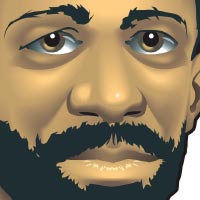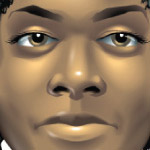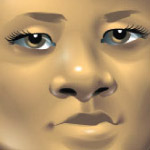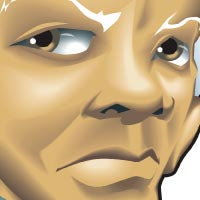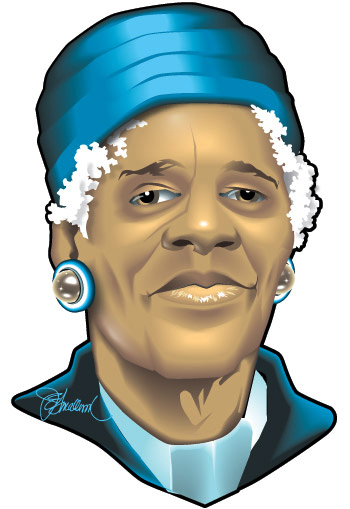
“The kind of role that I tried to play was to pick up pieces or put together pieces out of which I hoped organization might come.”
|
|
|
 Ella Baker Ella Baker
(1903-1986) — Pioneer in �the civil rights movement who worked largely behind the scenes, mentored leaders of the Student Nonviolent Coordinating Committee
By Bob Hilson
She’s been called the hardest working woman of the Civil Rights Movement as well as one of the most influential African-American leaders of the 20th century. Still, few people have heard of Ella Baker.
And that’s exactly how she wanted it, according to people who knew her.
Baker worked tirelessly behind the scenes in the 1940s, 1950s and 1960s to promote the ideals of non-violence in the pursuit of racial equality, not only for the National Association for the Advancement of Colored People, but within many grassroots organizations of the Civil Rights Movement.
Quietly but firmly, she offered advice for resistance to many African-American leaders and high-profile activists, including Martin Luther King Jr., Thurgood Marshall and W.E.B. DuBois. She also worked closely with Stokely Carmichael and Rosa Parks.
From the bottom up
Reserved and somewhat stoic by her own account, Baker believed that the most charismatic and professional leaders were not necessarily the most successful. She felt that the strength of an organization grew from the bottom up and not the top down, and that the foundation of any social change organization was not the eloquence or credentials of its top leaders, but in the commitment and hard work of the rank and file membership.
Her belief was that one’s deeds should precede them.
“You didn't see me on television, you didn't see news stories about me,” she told an interviewer. “The kind of role that I tried to play was to pick up pieces or put together pieces out of which I hoped organization might come. My theory is, strong people don't need strong leaders.”
In addition to her fight against racism within American culture, she doggedly fought against sexism and classism within the Civil Rights Movement.
Born in Norfolk, Va., but raised in North Carolina, Baker was the granddaughter of slaves; she recalled that her grandmother was once whipped repeatedly for refusing to marry the man that her owner had chosen for her.
Following her graduation from Shaw University in 1927, she moved to New York City where she organized the Young Negroes Cooperative League, a group designed to advance the causes of businesses owned by (African American) citizens.
In New York she also began a long association with the NAACP, working to recruit members nationally, raise money and organize local chapters. The work of branches of the NAACP, she believed, was its lifeblood.

She quickly rose through the ranks of the NAACP, becoming its director of branches and highest-ranking woman.
Baker died in 1986 on her 83rd birthday.
|
